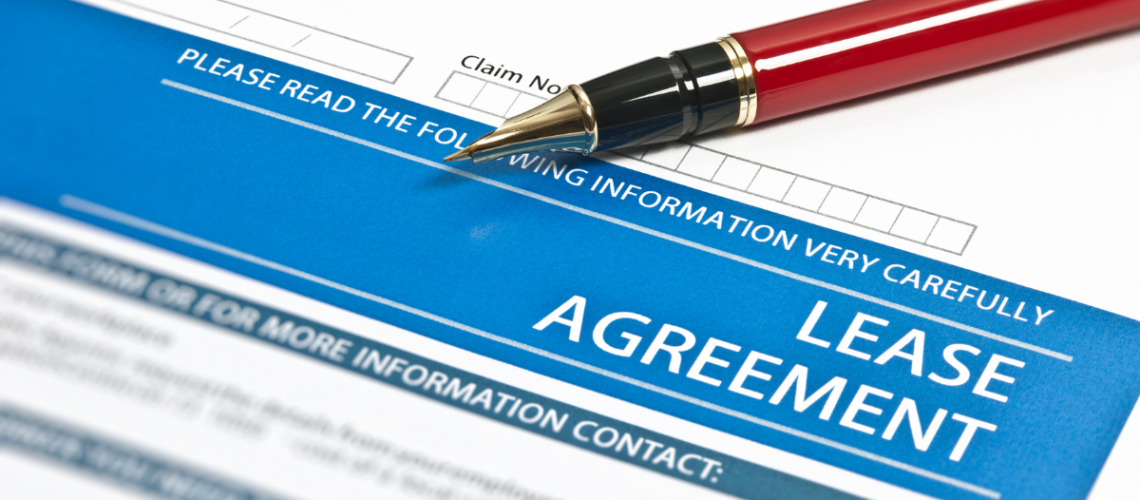Are you thinking about moving into a new office, or leasing out a workspace yourself? Whether you find yourself in situations A or B, we have everything you need to know about office space rental agreements on this page. This article will detail the difference between a rental agreement VS. Lease agreement, what to look out for in office rental agreements, and why an office rental agreement should be in place. Make sure your business interests are protected with our detailed guide to office rental agreements.
What is an Office Rental Agreement?
Basically, a Rental Agreement is a document suitable for anyone looking at leasing property for short periods, whereas a Lease Agreement is a document suitable for those looking for a long-term period.
Both are binding legal documents and all parties must honor the agreements.
Parties Involved
The ‘Parties’ associated with any type of commercial Rent and/or Lease Agreement are referred to as;
- The Lessee: the interested party renting the office space.
- The Lessor: in this case, the office space provider.
To avoid unnecessary costs and misunderstandings, any verbal agreements between the Lessee and Lessor should be included in the rental and/or lease contract. The rental and/or lease agreement should always be signed by both parties before the property is made available to the Lessee, to avoid any unnecessary conflicts.
Property
The office space rental agreement must define the property. Is the space located in a building, or is it its own complex? Is it a shared space amongst other offices? Any information pertaining to the property should be included in the rental agreement.
Duration
Every office rental agreement will come with a timeframe for how long the office can be leased out. Short-term rentals can range between 30 days to a few months, while longer rentals can be leased for a minimum of a 1-year period before renewing the rental agreement.
Rules and Guidelines
The rules and guidelines for renting office space are extremely important to include in the agreement.
If someone rents office space from you and breaks one of these rules, but it isn’t defined in the agreement, there isn’t much you can do. This is the same if the person renting faces issues with the lessor.
Common rules and guidelines included in an office space rental agreement include:
- Noise regulations.
- Can not obstruct areas around the office space; for example, the driveway.
- Limited access to certain areas in the office space.
- Hours of operation (some office spaces choose to close on holidays).
- Animals in the building.
Why Create an Office Space Rental Agreement?
There are a few important reasons why you should create an office space rental agreement if you find yourself in a situation where you’re renting out a property (or leasing). This agreement is a legally binding contract that outlines the responsibilities of each party and protects everyone from potential disputes that may arise in the future. In the long run, this makes it much easier to enforce rules about cleanliness standards, noise levels, etc.
What should an Office Rent and/or Lease Agreement reflect and include?
1 — Flexibility of Lease
- Commencement and duration period of your lease.
- Depending on the business growth or possible setbacks, what options are presented to the Lessee wanting to upgrade and/or downgrade should it be needed during the lease and/or rental period.
- Renewal options. What is the proper procedure expected from the Lessee who may want to renew their lease and/or rent agreements?
- Preferred payment methods as agreed by both parties.
- Damage Deposit:
- How much is the deposit requirement?
- What is the time frame after the vacation of premises the Lessee can expect to receive back their deposit?
- How are damages, if any, calculated and deducted from the deposit?
- Forfeiture of the damage deposit.
2 — Exit Policies and Conditions
- In the case that the Lessee does not desire to renew their agreement, what proper procedures are in place that need to be followed?
- If Lessee wants to terminate before the lease period is up, are there any penalties that they may incur?
- Upon termination of the contract, by what time of day do premises need to be vacated?
- For failure to vacate on time, what legal course of action or monetary penalties can the Lessor implement?
- What type of penalties the Lessee will incur in the case of;
- Late payment
- Breach of contract
- Forced eviction
3 — Office Services and Extra Fees

- Encompassed;
- And in regard to the extra services, how, and at what rate will the invoice be issued.
4 — Repair and Maintenance
Not all offices come in ready-to-move-in condition, or according to one’s taste.
1. In the case that the office is not in move-in condition, whose responsibility does it fall on to carry out the necessary works?
2. In the case of the Lessee wanting to put their personal touch or carry out minor alteration work, make sure that you have permission in writing from the Lessor. Also note that the following conditions associated with alteration works, are included in the agreement and agreed upon beforehand.
- A detailed plan of changes Lessee plans to carry out.
- Any restrictions of access — if any — to third-party contractors.
- Upon termination of the lease, who is responsible to reverse premises to their pre-existing move-in condition?
3. Wear and tear. What is the definition of the Lessor to be a ‘wear,’ and what is the Lessee’s cost for what is considered to be a ‘tear’?
Before taking possession or signing off on any agreements, both authorized representatives should do a walkthrough of the premises and draw up an itemized list. This should include details of the existing condition of the office space walls, furniture, and fittings.
One can also opt to take pictures. The photographic evidence should be initiated by both representatives and attached to the lease agreements.
4. Repairs and maintenance. Are tenants responsible to contribute to the costs associated with standard repairs and maintenance? If so, make sure that they are listed in the agreement.
5 — Lessee’s legal rights?
What are the Lessee’s legal rights in the eventuality of:
- Office building going into receivership?
- Office building going under new ownership?
6 — Lessor’s legal right
What is the Lessor’s right should the Lessee;
- Fail to vacate office space
- Fail to remove personal property
- Conditions for eviction
- Breach of contract
7 — Arbitration
During the tenancy, should any disagreements arise with failure to settle amicably, both parties can settle their dispute by arbitration. Any judgement handed down by the Arbitration Office is considered to be final.
IMPORTANT
Any amendments to existing lease contracts should be in the form of a separate written agreement that both parties need to consent to for changes to be valid.
All pages and any appendix sheets in the rent and/or lease contract are to be initiated by both parties.
Never sign a multi-year lease unless you have a solid exit clause.
The registered company name, and not your name, should be used in any commercial rent and/or lease agreements.
One is always advised to seek the professional advice of a lawyer or a notary before signing off any office rent and/or lease agreements. The appointment of either one of these representatives will help safeguard your interests.
What are the Advantages of Having an Office Space Rental Agreement?
Here, we’ll take a look at a couple of advantages to having an office space rental agreement.
It protects
Basically, everyone who signs the agreement is protected. How? The contract keeps everyone on the same page, so all parties involved clearly understand what they are and aren’t responsible for. Both parties are also aware of the consequences if a rule is broken, or a party does not fulfill their obligations.
Provides details about the lease
The office space rental agreement is where all of the information on the lease will be. Having everything in writing will help to know exactly what to expect from an office space and protect from future disagreements by ensuring that all parties agree on the terms of the lease before it goes into effect.
At the end of the day, whether you’re leasing an office or looking to rent a space, an office space rental agreement is a must-have. It provides legal protection for both parties as well as prevents any disputes that may come up during the lease. Without an agreement, you could find yourself without an office space one day!
SOHO Office Space provides office rental agreements that are transparent and beneficial to all parties involved. Contact SOHO Operations team today to discuss your next workspace solution in Malta.





